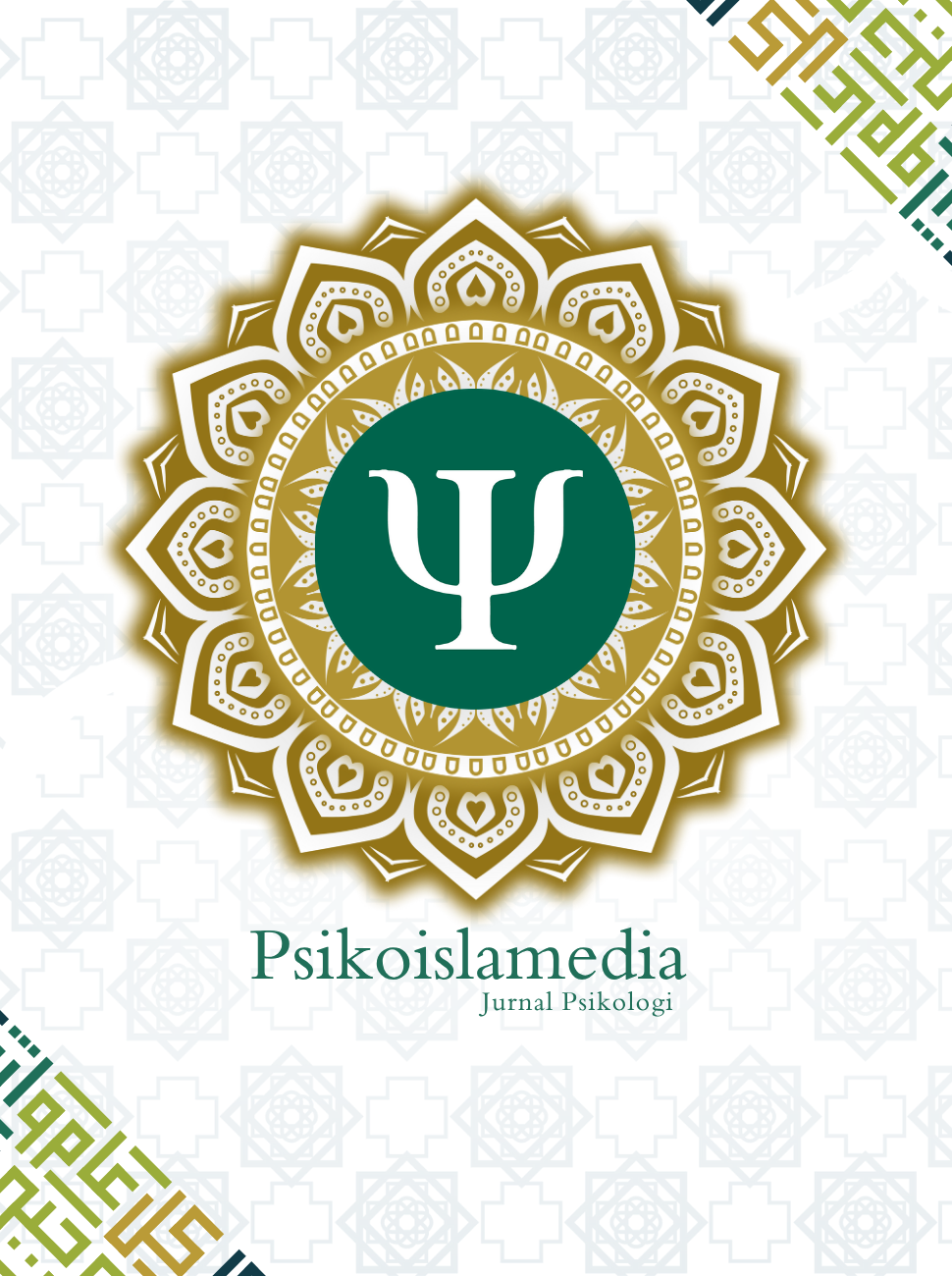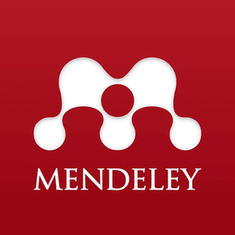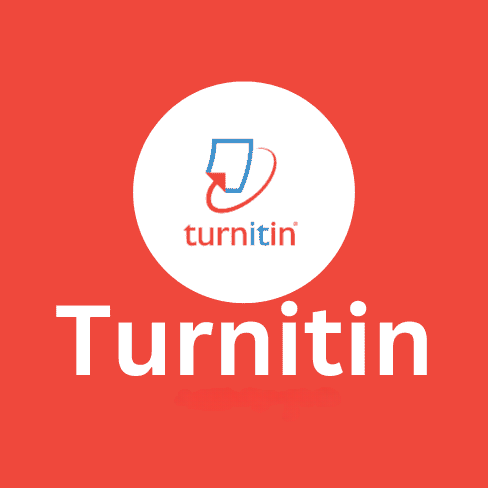ADVERSITY QUOTIENT AND SELF-REGULATED LEARNING AMONG ORPHANED AND UNDERPRIVILEGED STUDENTS IN ISLAMIC BOARDING SCHOOLS
DOI:
https://doi.org/10.22373/psikoislamedia.v10i1.28544Keywords:
Adversity quotient, Self-Regulated Learning, StudentAbstract
Orphaned and underprivileged students face significant challenges, such as life pressures, dual responsibilities, lack of study strategies, low motivation, dependence on guidance, and difficulty managing time, thus requiring self-regulated learning and adversity quotient. This study aims to determine the correlation between Adversity Quotient and Self-Regulated Learning among orphans and underprivileged students at the Islamic boarding school. The research sample consists of 275 students from the Orphaned and Underprivileged Islamic Boarding School using the Criterion Sampling technique. This study uses a likert scale with a reliability coefficient > 0.70. Data analysis was conducted using Pearson's product-moment correlation analysis. In the research results, an effective contribution of 32.7% from adversity quotient was obtained, indicating a significant positive relationship between adversity quotient and self-regulated learning among students at the Orphanage and Underprivileged Islamic Boarding School. This finding emphasizes the importance of developing adversity quotient to enhance the self-regulated learning of students in facing various challengesReferences
Abdurrahman, Abdurrahman. (2020). Sejarah Pesantren Di Indonesia: Jurnal Penelitian Ilmiah INTAJ, 4(1), 84–105. https://doi.org/10.35897/intaj.v4i1.388
Apriliyani, Adela Tri, Novandari, Weni, & Kholifaturrohmah, Ramita. (2023). The Effect of Self-Confidence, Adversity Quotient, and Self-Regulated Learning on Learning Motivation. Economic Education Analysis Journal, 12(1), 18–32. https://doi.org/10.15294/eeaj.v12i1.65798
Azwar. (2012). Penyusunan skala psikologi (edisi 2). Pustaka Belajar.
Baharun, Hasan, & Adhimah, Syafiqah. (2019). Adversity Quotient: Complementary Intelligence in Establishing Mental Endurance Santri in Pesantren. Jurnal Ilmiah Islam Futura, 19(1), 128–143. https://doi.org/10.22373/jiif.v19i1.3502
Cornista, Guillian Alaine L., & Macasaet, Charmaine Joy A. (2013). Adversity Quotient and achievement motivation of selected third year and fourth year psychology students of De La Salle Lipa A.Y. 2012-2013. … Thesis. Philippines: De La Salle …, 1–73.
Dianti, Yira. (2017). SEJARAH PERKEMBANGAN PERADABAN ISLAM. Angewandte Chemie International Edition, 6(11), 951–952., 5–24. Retrieved from http://repo.iain-tulungagung.ac.id/5510/5/BAB 2.pdf
Handayani, Titik, & Rasyid, Aliyah A. (2015). Pengaruh Kepemimpinan Kepala Sekolah, Motivasi Guru, Dan Budaya Organisasi Terhadap Kinerja Guru Sma Negeri Wonosobo. Jurnal Akuntabilitas Manajemen Pendidikan, 3(2), 264–277. https://doi.org/10.21831/amp.v3i2.6342
Herawaty, Yulia, & Wulan, Ratna. (2013). Hubungan Antara Keberfungsian Keluarga dan Daya Juang Dengan Belajar Berdasar Regulasi Diri Pada Remaja. Jurnal Psikologi UIN Sultan Syarif Kasim Riau, 9(Desember), 138=147.
Izzah, L. (2019). Kontribusi kemandirian belajar, AQ (Adversity Quotient) dan motivasi belajar terhadap hasil belajar Matematika siswa.
Kamal, Faisal. (2018). Transformasi pendidikan pesantren sebagai pembaga pendidikan Islam abad Ke-21. Paramurobi: Jurnal Pendidikan Agama Islam, 1(2), 17–30.
Kusnanda, Finna, Waspada, Ikaputera, Hilmiatussadiah, Kinanti Geminastiti, & Istikomah, Navik. (2022). Efek Mediasi Motivasi Belajar Pada Pengaruh Adversity Quotient Terhadap Hasil Belajar Siswa. Jurnal Pendidikan Ekonomi Indonesia, 4(1), 11–20. Retrieved from https://ejournal.upi.edu/index.php/JPEI
Maulani, Leni. (2018). Penerapan Pembelajaran Learning Cycle 7e Untuk Meningkatkan Kemampuan Pemecahan Masalah Dan Komunikasi Matematis Serta Self Regulated Learning Siswa Sma Ditinjau Berdasarkan Adversity Quotient (Penelitian Mixed Methodterhadap siswa kelas XIdi SMA Negeri 4. (Doctoral dissertation, Perpustakaan Pascasarjana).
Merianda, Nadia, & Rozali, Yuli Asmi. (2020). Pengaruh self regulated learning terhadap hardiness pada santri MTS Pondok Pesantren Daar El-Qolam 1 Tenggerang. JCA Psikologi, 1(1), 66–74.
Nailah Zamnah, Lala. (2019). Analisis Self-Regulated Learning Yang Memperoleh Pembelajaran Menggunakan Pendekatan Problem-Centered Learning Dengan Hands-On Activity Core View metadata, citation and similar papers at core.ac.uk provided by E-Journal Universitas Muria Kudus. 2(1).
Nurkarim, R. (2021). Implementasi pendidikan karakter anak yatim piatu di Rumah Pintar Yatim dan Dhuafa cabang Serang. 7(1), 12–18. Retrieved from http://repository.uinbanten.ac.id/id/eprint/6434%0Ahttp://repository.uinbanten.ac.id/6434/3/BAB I.pdf
Oktariani. (2017). Teman Sebaya Dengan Self Regulated Learning Mahasiswa Universitas Potensi Utama Medan Tesis Oleh Oktariani Program Studi Magister Psikologi Program Pascasarjana Universitas Medan Area Medan Program Studi Magister Psikologi Pada Program Pascasarjana Univer.
Sandelowski, Margarete. (2000). Focus on research methods: Combining qualitative and quantitative sampling, data collection, and analysis techniques in mixed-method studies. Research in Nursing and Health, 23(3), 246–255. https://doi.org/10.1002/1098-240x(200006)23:3<246::aid-nur9>3.0.co;2-h
Shodiq, Muhammad. (2011). Pesantren Dan Perubahan Sosial. Jurnal Sosiologi Islam, 1(1), 112–122.
Siboro, Eliakim Rolyadin. (2024). The Correlation Between Adversity Quotient and Self-Regulated Learning of Official Students at Forestry. 6, 2266–2282. https://doi.org/10.47476/reslaj.v6i4.1196
Stoltz, P. G. (1999). Adversity quotient: Turning obstacles into opportunities. John Wiley & Sons.
Subchi, Imam, Badranaya, Djaka, Bachmid, Achmad, Nufus, Amelia Zakiyyatun, & Muhammadiyah, Hilmi. (2023). Self-Regulated Learning on Santri: The Personality Type, Spiritual Intelligence, and Social Support. Tadris: Jurnal Keguruan Dan Ilmu Tarbiyah, 8(1), 181–195. https://doi.org/10.24042/tadris.v8i1.15906
Sugiyono, Sugiyono. (2019). Metode Penelitian Kuantitatif, Kualitatif dan R&D. Alfabeta.
Taufikin, Taufikin. (2022). Pesantren: Pendidikan Khas Indonesia, Tangguh di Masa Pandemi Covid-19. Tarbawiyah : Jurnal Ilmiah Pendidikan, 5(2), 151. https://doi.org/10.32332/tarbawiyah.v5i2.4285
Usmadi, Usmadi. (2020). Pengujian Persyaratan Analisis (Uji Homogenitas Dan Uji Normalitas). Inovasi Pendidikan, 7(1), 50–62. https://doi.org/10.31869/ip.v7i1.2281
Wenyi Rohi, Enasely Mega, Yuzarion, Yuzarion, & Hidayah, Nurul. (2022). Peran Daya Juang Bagi Self-Regulated Learning Siswa SMA. Jurnal Studia Insania, 9(2), 113. https://doi.org/10.18592/jsi.v9i2.4658
Widhiarso, W. (2010). Catatan pada uji linieritas hubungan. Yogyakarta: Fakultas Psikologi Universitas Gadjah Mada. (January 2010). https://doi.org/10.13140/RG.2.2.16194.32965
Zimmerman, Barry. (1990). Goal Setting and Self-Efficacy During Self-Regulated Learning. Educational Psychologist, 25(1), 3–17. https://doi.org/10.1207/s15326985ep2501
Downloads
Additional Files
Published
Issue
Section
License
Authors who publish in this Journal agree to the following terms:
- Authors retain copyright and grant the journal right of first publication with the work simultaneously licensed under Attribution-ShareAlike 4.0 International (CC BY-SA 4.0) allows others to share the work with an acknowledgment of the work's authorship and initial publication in this journal.
- Authors are able to enter into separate, additional contractual arrangements for the non-exclusive distribution of the journal's published version of the work (e.g., post it to an institutional repository or publish it in a book), with an acknowledgment of its initial publication in this journal.
- Authors are permitted and encouraged to post their work online (e.g., in institutional repositories or on their website) prior to and during the submission process, as it can lead to productive exchanges, as well as earlier and greater citation of published work. (See The Effect of Open Acces)














